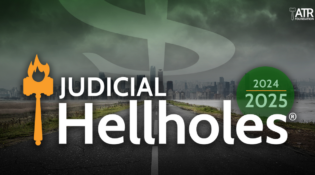California Supreme Court Properly Refuses to Expand Liability of Commercial Property Owners
On a certified question from the U.S. Court of Appeals for the Ninth Circuit in the case of Verdugo v. Target Corporation, the California Supreme Court yesterday held that a business does not owe a duty to its customers to obtain and make available an automated external defibrillator (AED) for use in a medical emergency. The Court should be applauded for its decision to rely on the policy determinations made by the Legislature and to not impose a common law duty.
The case arose after a woman suffered a heart attack and died in a large Target department store that did not have an AED. It was originally filed in the Los Angeles County Superior Court but was removed to federal district court. The district court ruled in favor of Target and the plaintiffs appealed to the Ninth Circuit Court of Appeals. After finding that California precedents did not provide sufficient guidance to decide the case at hand, the Ninth Circuit asked the California Supreme Court to clarify the state law.
The Supreme Court determined that while the state Health and Safety Code did not preclude the Court from determining whether a common law duty existed, it should take into account the existing AED statutes to better understand the policy considerations implicated by the decision. The Court found that nothing in the state Health and Safety Code required a business to acquire an AED and the Code explicitly stated that the sections concerning AEDs may not be construed to require a business to have one.
The Supreme Court then made an important distinction between a business’s common law duty to take precautionary steps prior to a foreseeable injury or illness on the premise and its duty to assist a customer after he or she has experienced an injury or illness. The Court held that without a showing of “heightened foreseeability” of a particular medical risk, “the policy decision whether a particular type of business… should be required to provide a costly or burdensome precautionary safety measure for use in the event of a possible medical emergency resulting from a patron’s medical condition is appropriately made by the Legislature, rather than by a jury on a case-by-case basis guided only by a general, unfocused “reasonable care” standard after a medical emergency has already occurred.”
The Court noted that the Legislature is aware of the severity of the health risks posed by heart attacks and has taken several steps to address the issue. It has not found it necessary to impose this requirement on business establishments, and the Court believes the Legislature is in the best position to make this determination.






